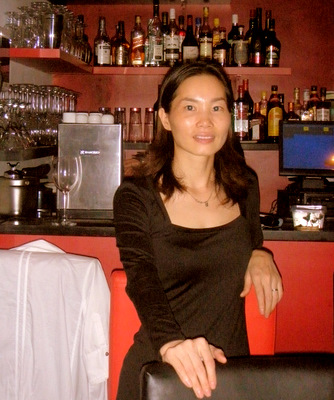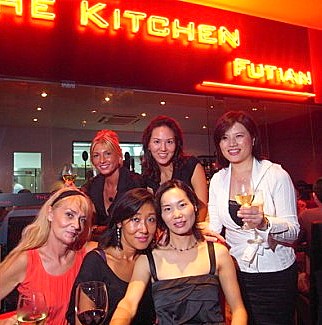
NEXTINSIGHT BRINGS YOU a series of interviews with both locals and expatriates who call the southern Chinese metropolis of Shenzhen both their workplace and home.
Our aim is to offer insights into what could be The Next Big Thing – Shenzhen – a city whose GDP growth and population have outpaced those of its richer neighbor, Hong Kong, seemingly since people began paying attention to the big and little dragons’ economic performance in the first place.
We also hope to bring a series of revealing snapshots on just what it takes for non-locals, as well as native Chinese, to live and work here, and thrive while doing so.
A common thread linking these industrious expats and successful locals together is how they have taken the best from their diverse backgrounds to make a name for themselves in what is an oftentimes faraway place like Shenzhen.
Things are rapidly changing in this dynamic 10-mln strong city which sports the highest percentage of non-local born residents of all the country’s major population centers.
London, New York and San Francisco of old – which in Chinese translates as “Old Gold Mountain” due to the belief by some in centuries past that the streets of America were indeed paved with the stuff.—were the destination of millions of Cantonese, Fujianese and other immigrants from Cathay looking to find their fortune in far-off, mysterious and more prosperous lands.
Now the hosts are becoming the guests as more and more foreigners – and successful Chinese from far flung provinces – are seeking to improve their lot in Shenzhen.
In this installment, we meet Chinese-Australian entrepreneur Ms. Shirley Wu, owner of The Kitchen (www.thekitchenfutian.com), an upscale dining establishment in well-heeled Futian district, and serving a wide variety of international cuisine.
And as if running a busy restaurant isn’t enough on her plate, Ms. Wu is also Director at real estate firm Cres Asia (www.cres-amgroup.com).
She came to Shenzhen in 1998 with just 200 yuan in her pocket and did waitressing jobs at Red Rooster and Romas before joining the staff at Casablanca restaurant in 2003. In 2007 Shirley launched Thai Orchid in the heart of SeaWorld Main Square and quickly established a reputation for fine food and great service.
Shirley is also well known via her Dial-an-Angel expat relocation service operating in Shekou. More recently, Shirley and her Australian husband have established the very popular Xpats Bar in the nearby Central Walk Shopping Centre.

Photo: Andrew Vanburen
NextInsight: How would you describe the business operating climate in Shenzhen?
Ms. Wu: We’ve been open seven months. I think now is a great time to be doing business in Shenzhen. And with the economy firing on all cylinders, a service sector firm like ours will benefit from the increased amount of money circulating in the local economy and the greater diversity of residents – especially foreigners -- who all bring their own dining experiences and expectations to the table.
That is where a restaurant like ours meshes in very nicely to the marketplace.
In addition, I also have another job in which I help move many foreigners to Shenzhen. And of course, I do casually mention to them that I also own a restaurant. So, you can imagine the benefits these two jobs bring to one another, and how well they complement each other.
And although I started here at The Kitchen Futian just seven months ago, a time in which the worst of the global economic crisis had passed us by, I must say that there is no sign of a recession here as far as I could see. (Indeed, the restaurant was full at the time).
What is your target market and how has it changed during your time here?
Ms. Wu: We have two basic types of customers.
The first group is more price sensitive, and they might stick to a single entrée or a platter of appetizers and a beer or two. This let’s them go home with wallets only about 100 yuan lighter.
The other group is our bread and butter, but they are ordering a lot more than just bread and butter, fortunately for us!
They are larger groups of young professionals all wanting the choicest menu selections and hoping to display their generosity by choosing some of our top shelf wines. A lot of the people falling into this group are local Chinese, and this is only natural given how robust economic growth at home has been of late.
I think this group must be doing very well indeed, because they are huge fans of our steaks.
What is the typical quality that characterizes this more lucrative, second customer type?
Ms. Wu: They are increasingly well-educated and a looking up-market. In fact, many of them are returning Chinese from both universities and workplaces around the world.
I would also say that the healthy economy means far more people are both wiling and able to take more of their weekly meals at restaurants.
Locals, especially, are much more open to the idea of regularly eating out than they were just five short years ago. And they are convincing others that such behaviors are normal and desirable.
The healthy economy means more revenue for your restaurant and real estate operations. But it also means higher costs. How has this impacted your operations?

Photo: Company
Ms. Wu: Our raw material costs have risen steadily, even in the seven months I have been here. Our food costs have gone up during this time, and much of it can be linked to the recent droughts in Guandong (province) and neighboring areas.
Labor costs have also certainly not merely treaded water of late.
Do tax expenses become more burdensome in a thriving economy?
Ms. Wu: I also am noticing a more thorough and comprehensive tax-collection regime at work in Shenzhen.
There is an increasingly strict monitoring of businesses come tax time, it seems. With the economy growing at this pace, I can’t blame the Finance Ministry for wanting to get their fair due.
Have you gotten the investment bug and put some of your hard-earned money in the market?
Ms. Wu: Admittedly, I haven’t invested much in the stock market so far. I know things are going well with this restaurant, very well in fact. But as an owner and not on a set salary,
I do realize that there is the element of long-term instability in that income arrangement. I only do as well as my restaurant does, and to a broader extent – as well as the sector as a whole performs.
Therefore, with property prices so high of late, and stock prices also rising quickly, I think it’s a bit risky for me to put too much of my money in shares. It makes me hesitancy.
However, I also benefit from a robust real estate sector, so I am well covered!
A lot of property transactions are conducted wholly in cash, so it is really hard to keep track of investment spurts as cash oven leaves no virtual footprint. I also doubt that some of the tighter regulations will work to cool the property market.
For example, the government occasionally requires a certain percentage of new units in a development to be 90 square meters or less, in order to limit luxury suites. But enterprising investors can simply knock down connecting walls when no one is looking and.. Voila.. suddenly you have a 180 square meter unit.
Where there is a lot of money, there is always the means and the incentive to work around regulations.
Read last week's SHENZHEN: UK publican in high spirits amid boom







